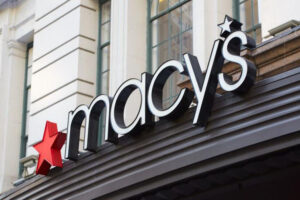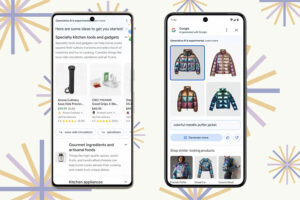How Facebook plans to become a ‘lighthouse’ in retail technology
The social media giant is also banking on hitting a sweet spot for retailers by investing in technology aimed at helping its partners to understand shopper behaviour.
Facebook’s head of retail Martin Harbech
Head of retail Martin Harbech joined Facebook a year ago from Amazon, with a stint at Google under his belt. His role is not new to Facebook but is becoming increasingly integral to the business’s long-term growth strategy.
“It’s a role that has existed for a while but at a much smaller scope, so it’s become one of our big strategic focus areas over the last year, and we’re definitely looking into this year and Next,” Harbech says.
“One of the big bets we’re placing is how we can engage with retailers and help them connect with people through all of our tools, technology and services.”
Over 12 months, the social media titan has developed dynamic ads, tested a ‘buy’ button on retailers’ brand pages and launched its ‘chatbot’ direct messenger service, which allows retailers to communicate with shoppers directly.
The social media platform is clearly innovating at pace but Harbech says one of the biggest challenges Facebook faces is changing how it is perceived by retailers’ senior management teams.
“It is interesting to see the shift in perception by our retail partners that previously saw us as a social channel where they can post competitions and see how many ‘likes’ they get,” says Harbech.
“Likes don’t pay the bills, so we really have to tell retailers that the way they have been thinking about this really important channel isn’t relevant – this is about us driving meaningful business results that are measurable and scalable.”
To prove its mettle, Facebook does not ask retailers to pay to implement any of its new technologies until they are “confident it is driving results”.
It’s a bold move that conveys how seriously the social media platform is taking its push into the retail space.
Facebook is rolling out a variety of new tech to its retail partners, which includeShop Direct, Tesco, Made.com and Farfetch.
Harbech says he and his team are working with “a small number of retailers to really push the thinking along in terms of what is possible, and create lighthouses in the industry that other retailers can look to and see what is possible if they use some of this new technology”.
Among a variety of initiatives under development at Facebook is technology that will send targeted adverts to shoppers based on their past purchases and location. For example, if a shopper is near a Tesco store, they could receive an advert with a personalised offer and walking directions for how to get there.
This technology, which Harbech says is “already built” and ready to test with retail partners, is part of a suite of tools the social platform is developing to monopolise on the rise of mobile.
Facebook launched dynamic ad capabilities for retailers on its website last year
Harbech is adamant that the cross-device shopping behaviour of consumers, who may browse on a laptop, order from a mobile and then pick up in store, means the cookie-tracking technology the majority of retailers use to track customers online is “fundamentally flawed”.
“That shift in behaviour alone presents a huge challenge for the industry because almost everyone relies on cookies, which cannot recognise that different online interactions are often the same person using multiple devices,” says Harbech.
He maintains that Facebook is “uniquely positioned” to help retailers track cross-device customer behaviour because of the number of shoppers that are logged into their social media accounts across their mobiles, tablets and desktops.
As well as being able to track shopper behaviour online, Facebook is creating technology that bridges the gap between retailers’ ecommerce websites and its own social platform.
It recently launched Canvas, a native advertising tool that embeds into the social media website’s homepage. The platform acts as a microsite for retailers, allowing them to provide editorial content, a selection of products and a link to their own website to make purchases.
Harbech does not rule out the possibility of shoppers being able to make purchases directly through Facebook someday.
“We are certainly taking steps towards customers almost being able to shop within our feed, but it’s all about what is useful for our partners, “ he said.
“There isn’t anything I can announce today, but we are always looking at ways we can add value for retailers and shoppers alike.”
Facebook delivers its retail initiatives at an eye-watering pace; Harbech says all the new technologies it is touting to retailers today were created “within the last 12 months”.
The business is becoming increasingly conflated with the soundbites of its chief executive and founder Mark Zuckerberg after he advised a young girl to “be the nerd” in order to make her millions last year.
Facebook’s new London office includes an ice cream bar
However, another slogan that hangs on the walls of Facebook’s offices is ‘Done is better than perfect’ – a mantra that Harbech says is integral to its retail technology offer.
He says: “Don’t keep building something until it is the perfect product because the reality is that will never, ever work. Build something, get it out to the partners and they will be very vocal if it isn’t up to scratch.
”We aim to build fast and then adapt faster based on the feedback we get, because none of our retail technology works unless we can prove that it is driving results for our partners.”
Delivering innovation and results at speed is Harbech’s main remit, and it doesn’t look like the pace is going to let up any time soon. However, the ecommerce veteran is up for the challenge.
Asked why he joined Facebook from Amazon, Harbech says: “It is interesting to see how retailers are all facing similar challenges and here was an opportunity to solve some of them.
“If I was to pin down one thing about working here that excites me – outside of the ice cream – that would be it.



